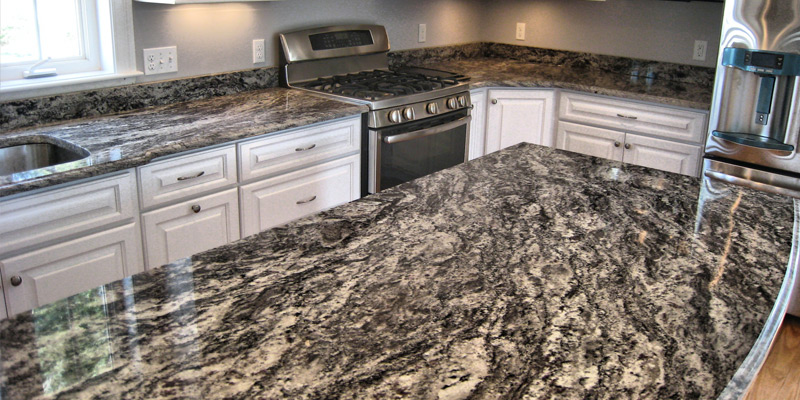
The kitchen is the heart of every home, and as such, it needs to be well-equipped for cooking. But in order to cook with ease, you need a countertop that can withstand heat from pots and pans on the stove as well as from hot ovens. There are many different materials used for kitchen counters, but not all of them are designed to take high temperatures.
We’ve put together this list of eight popular kitchen countertop materials that will stand up against heat so your cooking experience can be more enjoyable and less stressful!
Granite is one of the most expensive options for a countertop, but it has excellent thermal properties because it doesn’t absorb or retain heat very easily. It also has a high resistance to scratches and is very durable, making it a good choice for busy kitchens.
Pros of Granite:
Cons of Granite:
Quartz is made from crushed quartz crystals and is one of the most popular kitchen countertop materials because it’s affordable, durable, and easy to maintain. This material differs from granite in that it doesn’t have any pores, so it doesn’t absorb liquids or bacteria.
Pros of Quartz:
Cons of Quartz:
Stainless steel is a popular choice for kitchen counters because it’s easy to clean and does not corrode in the presence of moisture. However, it does have poor thermal conductivity, meaning that it can’t dissipate heat very well, so it may not be the best choice for a counter next to the stove.
Pros of Stainless Steel:
Cons of Stainless Steel:
Stone is a natural material that comes in many different varieties, such as marble, slate, and limestone. It has good thermal properties and is very durable, but it can be expensive and difficult to maintain. Marble is especially susceptible to staining and etching from acidic foods and liquids.
Pros of Stone:
Cons of Stone:
Concrete is a popular choice for kitchen counters because it’s very affordable and can be customized in many different ways. However, it has poor thermal conductivity and can be stained or etched by acidic foods and liquids.
Pros of Concrete:
Cons of Concrete:
Tile is a popular choice for kitchen counters because it’s affordable, durable, and easy to clean. However, it can be difficult to repair if it’s damaged.
Pros of Tile:
Cons of Tile:
Now that you know about some of the most popular heat-resistant kitchen countertop materials, it’s important to understand why this feature is so important. Here are just a few reasons:
Now that you know about some of the most popular heat-resistant kitchen countertop materials, it’s important to understand why this feature is so important. Here are just a few reasons:
So how do you choose the right heat-resistant countertop material for your kitchen? Here are a few tips:
Choosing the right countertop material for your kitchen is an important decision. This article has covered some of the most popular heat-resistant materials and why this feature is so important to consider when you’re making a purchase. If you are considering any of these materials, be sure to talk with a professional installer about installation tips, maintenance advice, and other considerations that will help make your new countertops last as long as possible.

Countertops Detroit.
2024 © All Rights Reserved. Terms of use | Privacy Policy